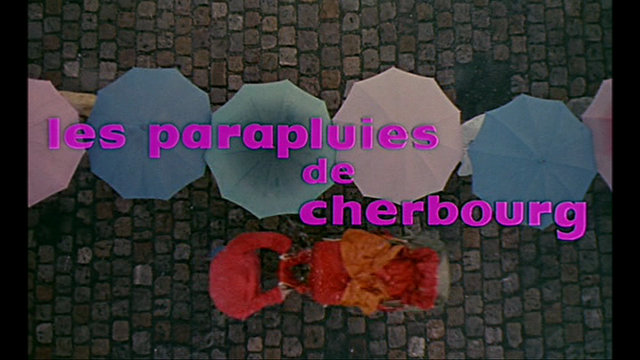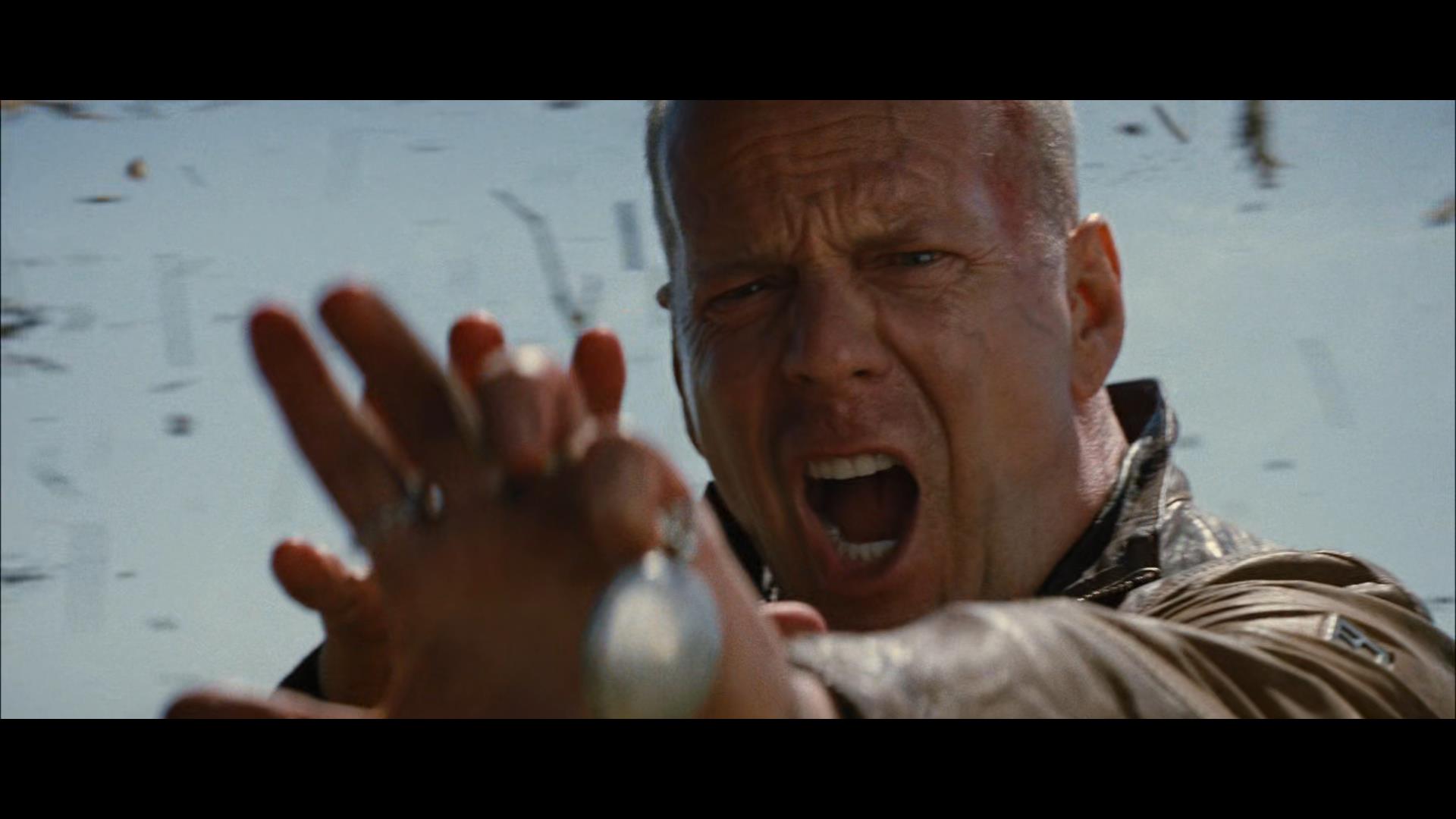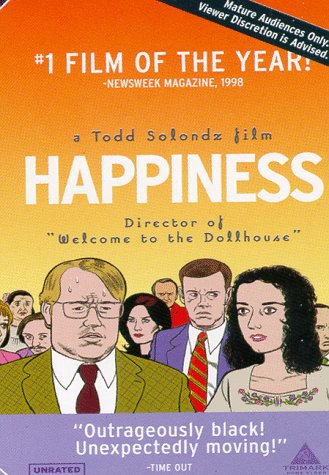
All posts by StanleyRumm
Digital Cinema -not all it’s cracked up to be
Am I the only one bothered by the look & feel of digital cinema?
I mean, Roger Deakins did quite well with what he had to work with in Skyfall, but that much-celebrated Shanghai sequence looks to me more like a sleek corporate video presentation than “a Film”. The parts set in Britain were no different in look & feel from an episode of The Apprentice (in HD).
Something is lost in the crisp, perfect cleanness of digital cinema. It’s like taking a hi-res scan of an old painting and presenting that as the thing itself. It’s not.
Film… actual celluloid has its own qualities, inconsistencies and depths that only add to a great film. They are not blemishes or mistakes, no more than a blob of paint or the weave of canvas are on the Mona Lisa.
Why should I go to the cinema to see a digital film when soon after I’ll be able get the exact same image at home on Blu Ray with no disturbances or interruptions from strangers with anti-social habits?
It seems to me, that instead of promoting 3D as the key-feature to entice people to cinemas, they should be using and promoting actual analogue FILM. You don’t get that at home.
Well, mostly.
Looper -what is that all about then?
Click here for a video update to this article…
I’d like to talk about the movie Looper, which I saw today -but I won’t spoil the ending.
I can’t say this movie is exactly my cup of tea, but it’s great to see a mainstream movie that is actually about something for a change other than the usual goodie Vs. baddie affair.
In this case, it’s clearly all (/mostly) about child abuse/ ending the circle of violence (whilst not doing so overtly lest it put you off)
-and it’s just how such a subject should be presented if you ask me.
After all, we learn nothing from being lectured or spoonfed hard-to-take information, but wrap it up in an interesting sci-fi tale and we can learn all about it vicariously whilst puzzling and arguing over loopholes and paradoxes to our heart’s content. It has nothing to do with any of that if you ask me. It’s another Superman’s Underpants film -we should look beyond the easy-to-pick-at frontage to see what it’s actually about.
In that, it’s old-school cinema -it’s not that it’s there to teach us all a lesson, but there’s plenty going on under the skin if you choose to look. View it as a straightforward Time Travel movie if you choose not to.
Bruce Willis is excellent, playing a complex character who does some not-so-nice things. Levitt is very good too, but I must say I was most distracted by his eyebrows throughout. Not since Julia Roberts’ lips in Oceans Twelve have physical features upstaged the person to which they were attached in a movie.
Overall, Looper is a little bit too violent/ aggressive for this sensitive little soul, but I guess that’s the point.
In what way is this film “about child abuse”?
First of all, there’s the first shot of the film (if I remember correctly, I’ve only seen it once and I can’t capture still-frames for this piece -if it’s not the first shot, then it’s the first person we see) -a close-up of a proto-typical “abused child”, forced to eke out its existence in abusive circumstances. Since this is “a time travel movie”, during this extended shot we are invited to consider this child’s past and likely future.
Secondly, consider every child we come across. One has been abandoned by his mother at an early age and is already traumatised by the experiece. Will he have a future that is free of abuse? One is the child of a stripper and is on the target list of his “surrogate father”. The only ‘possibly non-traumatised’ child is left alone just long enough to have violence come a-knocking.
Consider also the upbringing of the main character (Joe?)
To be honest I can’t remember the details, but he did not have a happy childhood and it is clear that when Jeff Daniels/ “Abe” discovered him, the work was already done that qualified him for his life as a Looper. As a result of Abe’s intervention his violent life could take on a more structured form. So you could say the abuser showed him how to abuse -and this is what he has always done.
Also think of Abe himself -a man from the future -our future-self (or the typical future-self of each character in this movie). He too is a victim, doomed to exile in this dreary “past”, reinforcing this cycle of violence, ensuring its continuance.
There is also the “Kid Blue” character to look at, who appears to love Abe as a son would a father (or an abused child toward his manipulative abuser perhaps? -Think of how Abe behaved toward Joe when he wanted something from him -“I gave you all you have” type dialogue -Kid Blue likely got the same speech regularly and has obviously taken it more to heart than Joe has.)
Either way, Abe appears to return this love enough not to kill Kid Blue, but clearly he isn’t averse to violent outbursts when he feels its called for.
There are many paradoxes and loopholes to Looper, but the main one that bothers me is this (and this last bit I’m afraid will be a spoiler):
Highlight the text between the following markers to see the ‘spoiler’:
– –
The premise appears to be that the main kid (Cid I think?) is given a chance to be spared the cycle of violence, whereby the victim ultimately becomes the perpetrator, by him being freed of his “abuser” to be brought up in the care of his loving mother… therefore, by the time he grows up he presumably has “learnt” not to become the “evil Rainmaker”, going on a rampage, killing all loopers. Therefore, the world of “Looping” continues. ?
– –
OK, it doesn’t ‘bother’ me. It makes me smile. This is a movie after all, not a psychology journal. There’s enough in it to consider at least. Even if most people don’t consider such things while they watch a movie, it’s the reason why fiction is so powerful -it allows us all to take on board (if only perhaps on a subconscious level) topics and truths that otherwise cannot and will not be confronted.
Disclaimer: I’m not suggesting for one minute that everyone who abuses becomes an abuser. It is a theory at least that “abusers” of every kind learn to be like that during childhood. Thankfully it’s not as simple as that in real life.
What’s Wrong With The Newsroom?
The Newsroom is a HBO series (still on Series 1 at time of writing) developed by Aaron Sorkin.
Have to say, I’m having a problem with it. I think there’s not enough “news”, but instead too much room is given to the annoying characters throughout. Jeff Daniels is great, but Emily Mortimer is miscast. She plays the role perfectly well, but I don’t believe her as a veteran journalist and even less as a top newsroom producer -and did you see that first episode where two characters trip over themselves to deliver the ‘excuse’ for her english accent in the most hokey expositional manner? How bad was that?
That’s not the whole problem though. I’ve heard it said they bash the Republican party too much. Not true -they only bash the Tea Party’s more ridiculous rants & claims.. and even then it shows clearly how ridiculous they are -and why- rather than just laugh at them.
No, the biggest problem is Aaron Sorkin: He’s the loudest guy in the room and I don’t think anyone has the guts to tell him be quiet some times. Just about *every* conversation is now a Sorkin formula: Two people shout at each other. One says something silly in the middle of the fast-paced argument, but it’s let slide. At the end of the scene, one of them leaves the room but is called back at the last second by the other who finally gets around to the silly bit, saying something like “did you really wear a dress to that party!?”
Promises
This is possibly my favourite song from our forthcoming album. The album will be called Marvellous Day and will be available… soon.
What is Art? What is Happiness?
What is Art?
Certain artists -artistes if you will- invite you into their world, to see your own world through their eyes. For many viewers/ listeners/ readers/ participants this can often come across as incomprehensible nonsense. For others more-attuned to the wavelength of the originator perhaps, it can immediately be recognised as a breakthrough, speaking directly to the heart of what they’ve always felt but could never hope to express -or if not that, immediately appreciated as an expression of truth -or even a new kind of truth.
The rest of us can wander around as if in a daze afterwards, unable to comprehend what we have witnessed, often experiencing an incomprehensible anger or contempt towards what has been put before us, such is the level of mistake or seemingly wrongness to it all.
People often attribute a certain intellegence-level to the appreciation -or lack of appreciation- of such art (and it works both ways, with cries of elitism or braindead-ism for its enjoyment or otherwise.) Perhaps it is a branch of intelligence, but to my thinking it has nothing to do with the Comprehension we usually mean by intelligence. In fact I believe it is often the opposite of this: it’s to do with the ability willingness to traverse comprehension.
None of this is to suggest I’m always to the fore in recognising/ enjoying/ appreciating such an ‘auteur’. There are many such ‘creators’ in different fields whom I readily admit must have something but which I can never (thus far) grasp. eg. Thomas Pynchon, Jean Renoir, Tom Waits, James Joyce, most ‘modern art’ artists, etc..
Immediately I’m a philistine to fans and officianados of these people, I know. I don’t mean to cast aspersions on such maestros’ work, but rather shine a light on their commitment to the craft -their vision -their outlook on life. I salute such singular approach to “Art” in all forms, whether I “get it” or not.
This to me is what Art is. A true artist is one who knows (no doubt) the rules and has heard all the arguments for how things are supposed to be done. He/ She is aware of every reason why something doesn’t work, but yet spots or senses something new, something unconsidered, something overlooked and brings it to the fore.
Sadly, more and more it seems, the world is full of so-called writers/ directors/ painters/ musicians who first look outwards at “what the audience/ publisher/ agent wants” rather than inwards at “What do I know? What do I feel? How do I see the world? What can I bring to the table?”
To my way of thinking, this is the difference between an Artiste (whether I can personally appreciate them or not) and a whore. Mostly the world of cinema/ books/ ‘art’ consists of whores.
What is HAPPINESS?
Happiness is a 1998 film by Todd Solondz.
The first time I saw it (around the time of its release on Region 1 DVD) I must confess I was appalled. The film, with its depiction of some seriously dysfunctional individuals in a seemingly-comic setting jarred me so much I felt contempt for everyone involved. “How could these people even agree to act in such a movie?” was my genuine first thought. I couldn’t believe, for one thing, someone had made a film wherein (among other things) a paedophile was portrayed sympathetically. A sickened anger arose in me long before the credits spurted onto the screen. I even felt anger towards my wife who afterwards conveyed no such contempt for what we had witnessed. How could she have so much as tolerated this travesty?
For a long time after (hours? days? weeks?) I was Alex from A Clockwork Orange following his aversion-therapy. Whenever I thought of that film I felt ill. Seriously.
Then a strange thing happened some six months later: I happened across a forum where people were expressing an appreciation of “that film”. As I read, I began to be reminded of scenes that “weren’t too bad”. Once or twice I tittered despite myself.
Yet it was some three months after this again when I finally found the courage -or the will- to rewatch Happiness. My reaction was a complete reversal -I laughed and loved it all the way through.
Since then I have watched Happiness at least seven times and each time it gets better and better. I now count it as one of my favourite movies of all time. I do find it too long but there is nothing in it I would or could think of that should be cut.
Although I sympathise with the view that it is a sick movie, I look back on the person I was when I first experienced it (in 1999 or so?) and feel nothing but an almost embarrassment for my reaction.
The movie was the same, so what changed?
The obvious answer is “me”, but it’s not just that. Of course on my second viewing I was forearmed with the knowledge of what was -and was not- going to happen. I was no longer viewing it, imagining where it was going, but now I could actually look at where it was going and perhaps experience that for the first time rather than watching in fear of what would come next (no pun intended).
Certainly though, the main thing to have changed in that 9-month or so period from first viewing to second was me. This movie I believe showed me how a movie should be (in my view).
The problem with the movie is also its strength: it has no Hero Protagonist -nobody for us to root for -nobody we can easily empathise with -nobody we want to empathise with.
It’s not the first or the last film to do such a thing of course (not even from this director) but for some reason it took me many months after viewing Happiness to realise that almost every film out there virtually insists I ‘like’ the protagonist(s) and plays to my prejudices and preferences in order to gain my affection.
Happiness almost does the opposite. It’s a film whose characters are surely disliked by everybody, yet dares the viewer to look past this to see the bigger picture.
Post-Happiness, I think perhaps I’ve learnt to be more guarded with my affections towards onscreen characters. I don’t submit to them freely -and I find myself separating emotion from the rest of the ‘package’ that makes up a film.
It’s likely this film wasn’t solely responsible for my ‘movie-viewing transformation’. For instance I’ve always found myself favourably disposed towards the films of Stanley Kubrick, who is often (wrongly) said to ‘lack emotion’. What Kubrick -and the movie Happiness among others- does is to lay the plans out at one’s feet and allow the audience -the viewer- to decide how to react/ how to see it.
Armed with the fruits of this ‘effort’ the viewer is better able to judge for themselves what they have seen/ how they feel towards it. The result is everybody sees it differently -as true-art is always experienced. No two people see the same Kubrick film -and nobody sees the same Kubrick film twice in the same way.
Don’t get me wrong -spending 90 minutes being spoonfed emotion-on-rails via manipulative characters/ visuals/ audio can be enjoyable too. Who’d like to live on nothing but steak after all? That can be as debilitating as the guy who spends a lifetime slurping beans with a spoon.
It’s not an either/or choice, but I would dearly love if the phrase “leave the brain at the door and enjoy” was more readily recognised for the braindead remark it truly is.
By all means enjoy the chicken nuggets and the sausages and the beans and the sugary candy, but don’t mistake it for a slap-up all-round honest-to-goodness healthy meal.
Anyway, after fourteen years or so I thought it important to throw a few thoughts together on the subject and to mention that I believe Happiness is a truly excellent film that deserves widescale recognition and acclaim.
Barry Lyndon Duel Scene Found
I spoke a little while back about what makes Barry Lyndon such a great film and about the (first) duel scene in particular.
Well at long last I have visited this very location in Templemichael Co. Waterford (well actually just outside Youghal Co. Cork) and returned with some interesting photographs of this still-tranquil location.
Of course without a wide angle lens it was never going to be possible to ‘recreate the scene’. And some inevitable changes have taken place/ additions made/ removals/ overgrowths, etc. in the past 25 or so years, but overall it’s still recognisably the same place.
Take a look.
The Umbrellas of Cherbourg -My Kind of Anti-War Movie
There is something self-defeatist about movies that purport to be anti-war spending 90 minutes bathing in blood and comradeship. Violence is its own advertisement. Showing more of it in order to lessen it is akin to invading a country in the name of peace.
Furthermore, like a closet-gay spending an inordinate amount of time ranting against homosexuality, the very people who get their knickers in a twist over onscreen orgiastic blood-letting are often the ones most titillated by it. How else can Gibson’s Passion of the Christ be explained? Extreme violence turned up to a sadistic-11 in the name of all that is holy and righteous.
The truth is Violence and Aggression and Anger and Death are cool. Singing and Romance are not. I say that with a contemptuous sneer, not as a justification for what is considered cool.
Singing & Romance (together) are allowable nowadays only if accompanied by a nod & a wink that advertise how you recognise the inherent uncoolness of it all, but that you are so cool you just don’t care, which makes it acceptable and perversely cool.
But before ironic cool uncoolness there was unapologetic joy and love and beauty and raw emotion without the baggage of the pre-packed Happy Meal mode in which to consume it.
You can fight and complain about what is considered cool -and make a good case as to why it should not be so considered, but the more you do the cooler it gets and the further into Crater of Uncool you dig.
Enter The Umbrellas of Cherbourg.
Continue reading The Umbrellas of Cherbourg -My Kind of Anti-War Movie
What makes Barry Lyndon a Great Film?
It’s a slow movie, granted, but Barry Lyndon is lovely to look at, to sink into and to soak up. It’s a 3-hour 18th century bath, made with complete care. Music, visuals, scene-development, plot and camera movement blend together like a ballet (no I’m not into ballet either). I know that might sound like a stuffy sketch of almost any movie, but here it’s different.
.
For example, take the duel scene from early in the movie (no spoilers)
*** You need to TURN IT UP to properly hear the music -the music *must* be clearly heard here. ***
…you could say it’s a duel, one guy gets shot and the other has to run away to Dublin. The end.
But -taken from the start… close-up of the guns is like a painting…
The Bag For Life
Remember this bag?

It was introduced by Super Valu supermarkets (in Ireland) prior to the introduction of the Plastic Bag levy in 2002.
During the build-up to the new tax everybody complained. It would never work and it would drive people away from the shops, businesses argued.
Convinced that footfall would suffer, Super Valu (and possibly a few others) decided to get one up on the competition by adopting this “Bag For Life” policy.
The idea was that if & when the bag broke or deteriorated they would replace it -free of charge. For life.
It was “The Bag for Life”.
…At least this is my recollection of it.
I asked if this was correct in my local Super Valu recently. The staff member looked at me for a moment, counting my heads it seemed, before bursting out in tears of laughter. She had never heard the likes of it in the past nine years (since the levy) but it did ring a bell with her and she’d be interested to hear if it was true herself.
We discussed it for a while and she admitted to me she had lots of these bags at home and she’d love to replace them with new ones. Looking left and right she tried to find a manager for me to talk to, but there were none available. Meanwhile a queue had built up behind me and it was the only til open (being early in the morning). She asked if I did want a replacement bag. I said no -but I am curious about it. I know Mrs. Rumm threw some out a few years back and I’d like to know if she deserves my eternal scorn for doing so.
The staff member offered to go find the manager but I told her to leave it -“I’ll be back,” I assured her, “we’ll do it then.”
My question is, AM I WRONG?
I searched online and so far the only thing I can find to suggest I’m right is this page from The Fingal Independent in 2000.
In case that link goes dead at any time, here’s the relevant paragraph:
– – – – –
Manager Shea Smith is planning a one-week promotion to give away the ‘Bag for Life’, which will normally cost 10p.
A very nominal sum given the supermarket’s promise to replace it free of charge if even after bearing the weight of many kilos of comestibles it tears or breaks.
– – – – –
…Or maybe The Bag for Life (“Our Children will thank us for it”) means something else?



